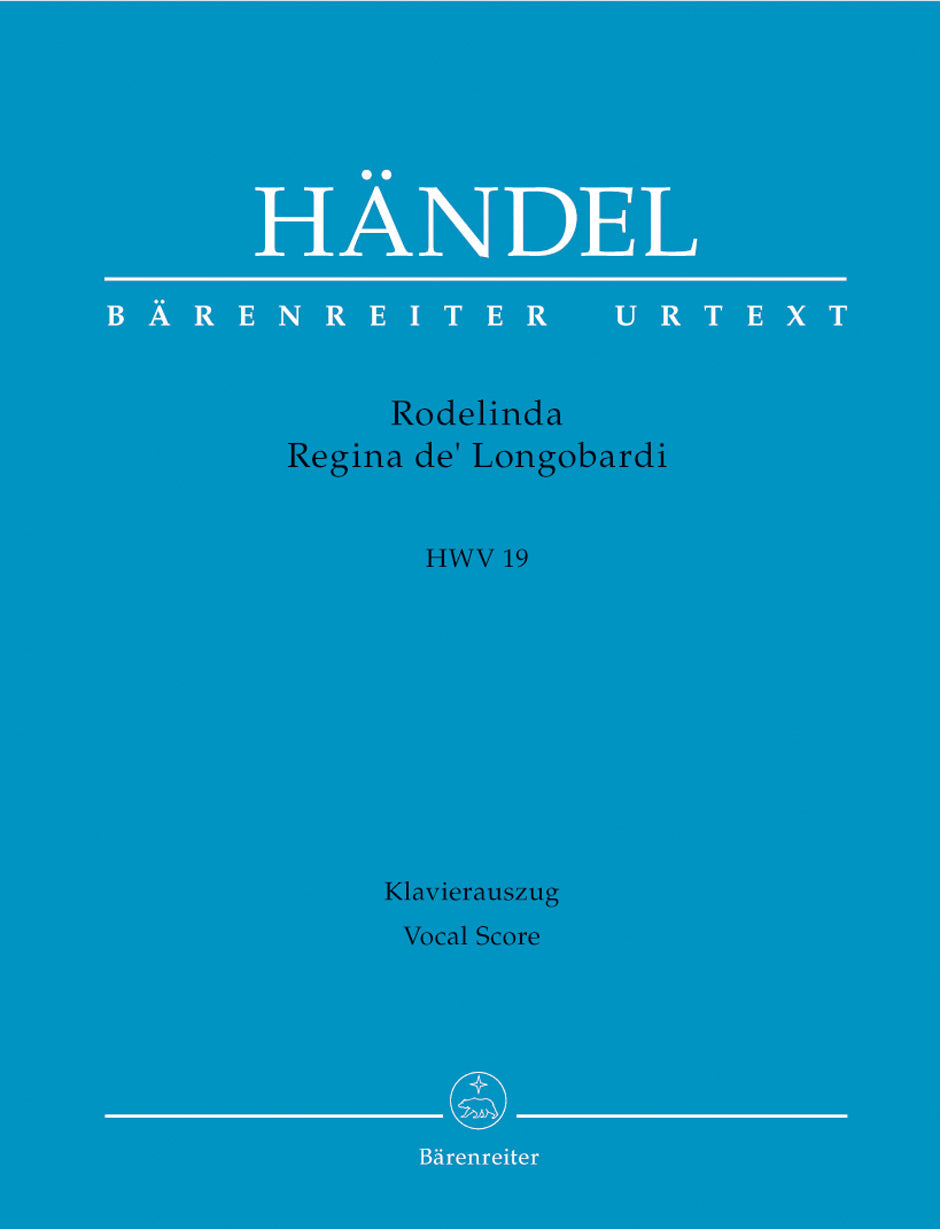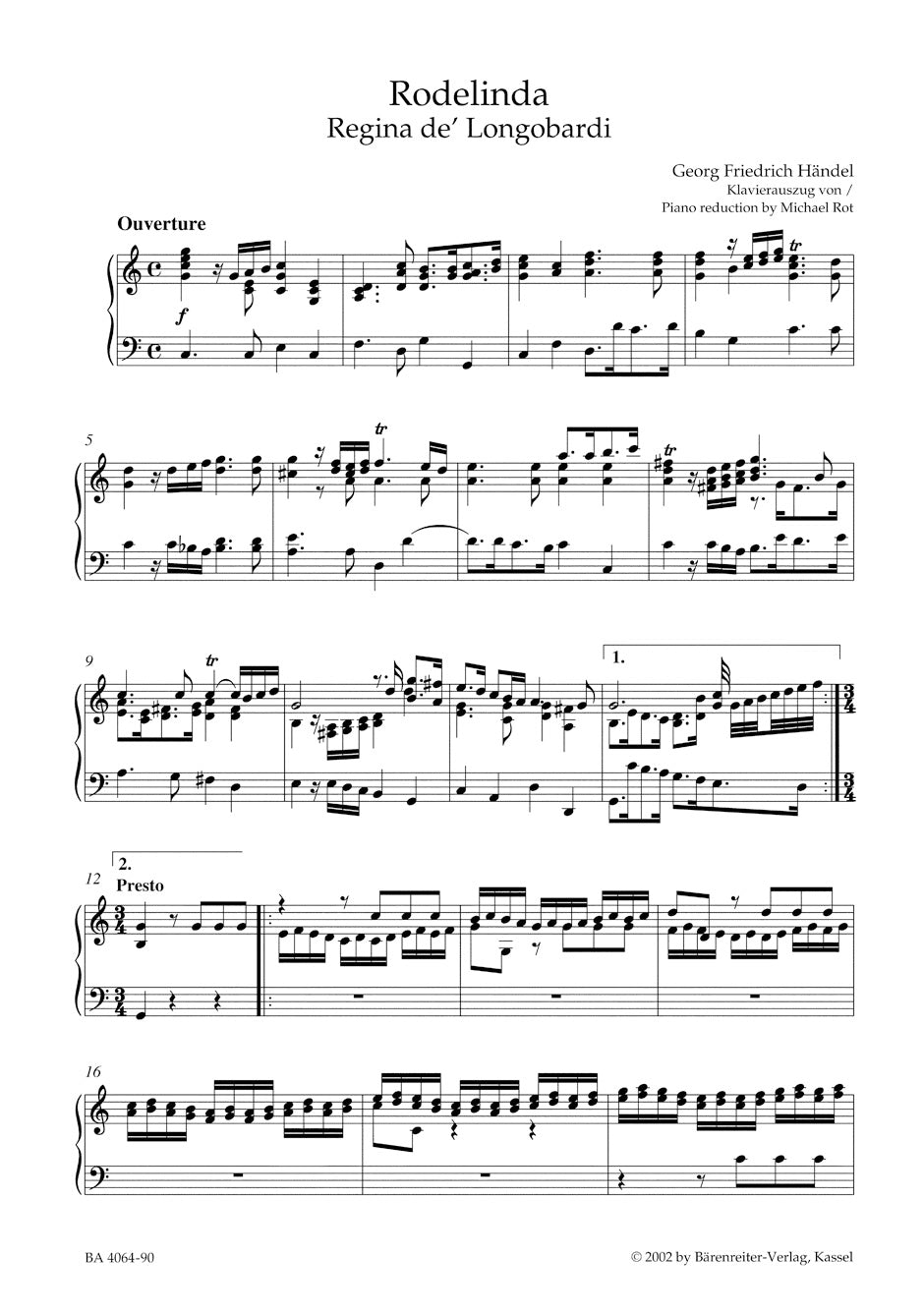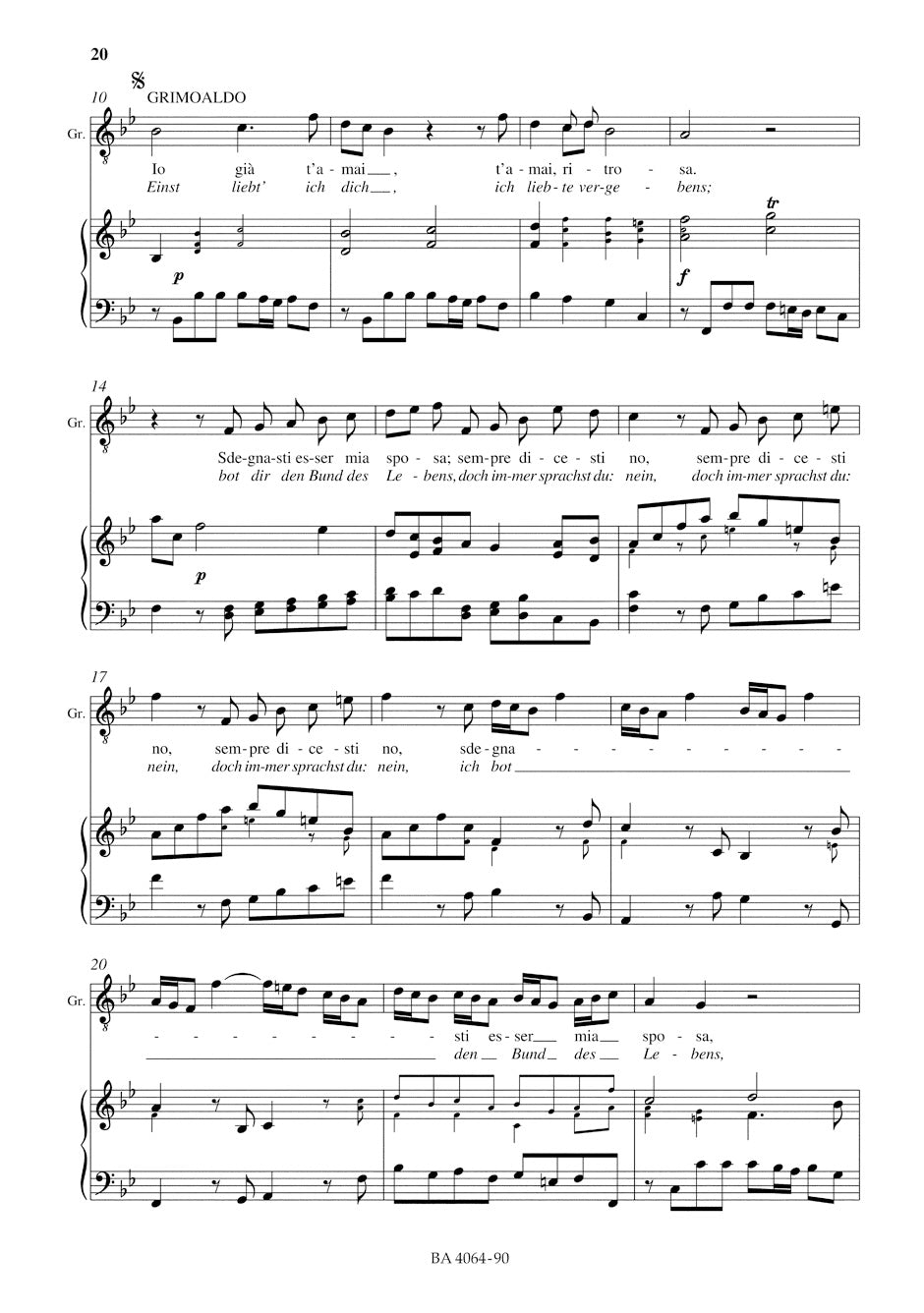


BARENREITER - 345062
Handel Rodelinda, Regina de' Longobardi HWV 19 -Dramma per musica in thre acts-
Composer: Frideric Handel George
Publisher: Bärenreiter
Instrumentation: Voice
Format: Vocal Score
Binding: Paperback
Dimensions: 10.6 in x 7.5 in
Pages: 303
Handel Rodelinda, Regina de' Longobardi HWV 19 -Dramma per musica in thre acts-
Juilliard Store
144 West 66th Street
New York NY 10023
United States
Choose options
Handel Rodelinda, Regina de' Longobardi HWV 19 -Dramma per musica in thre acts-
Juilliard Store
144 West 66th Street
New York NY 10023
United States
Handel Rodelinda, Regina de' Longobardi HWV 19 -Dramma per musica in thre acts-
Juilliard Store
144 West 66th Street
New York NY 10023
United States
Editor: Jones, Andrew V.
Arranger: Rot, Michael
Orchestral scoring : SSolo/MezSolo/2ASolo/TSolo/BSolo/Orch
Language(s) of work: D/I
Product format: vocal score, Urtext edition
Binding: Paperback
Pages / Format: XI, 303 - 27,0 x 19,0 cm
Oskar Hagen’s revival of Rodelinda in 1920 ushered in the modern Handel opera movement.
The work forms the climax to a series of dramatic masterpieces that includes Handel’s most significant operas.
Handel returned to Rodelinda on two occasions, in December 1725 and in May 1731. Many far-reaching changes were necessary owing to the different skills of the new singers.
For example, Handel wrote three new arias and a duet for the first revival. Yet the changes he made for this performance, doubtless to accommodate the needs and wishes of the singers, also improve the work’s dramatic substance.
Our vocal score is based on the Urtext of the full score published in the Halle Handel Edition (II/16) and reproduces the various alternative readings and versions in an appendix.
